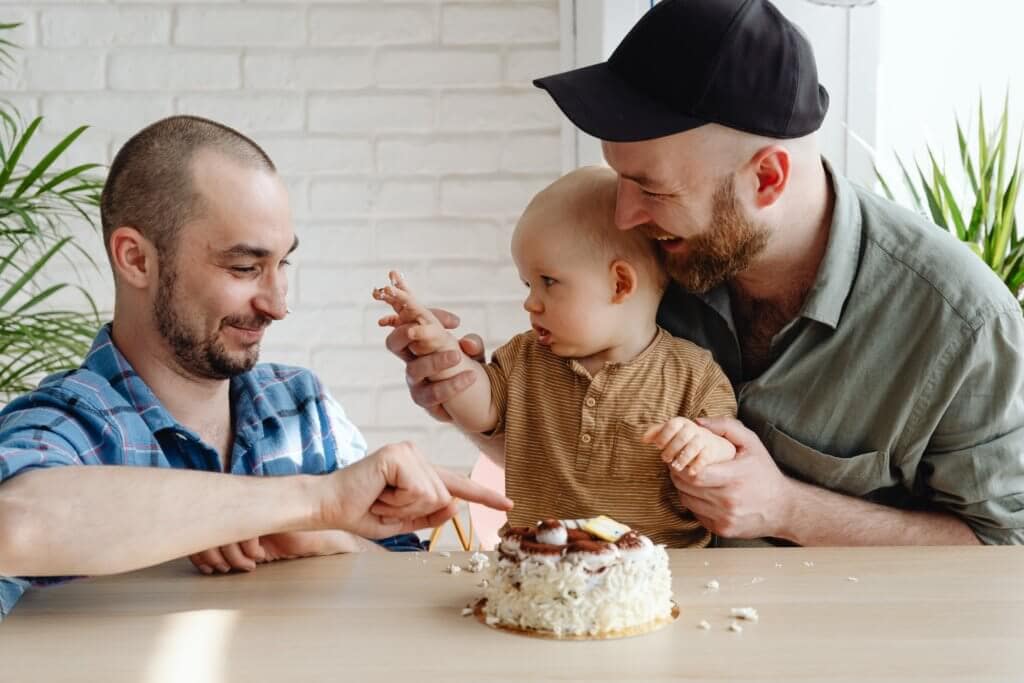Surrogacy options
This is the main way for two gay men to have a biologically related child. Male sperm is usually combined with an egg from a donor woman who isn’t the surrogate carrying the baby. Although one woman can perform the role of surrogate and egg donor, this situation is generally avoided so that the child doesn’t share half of its genetic material with the surrogate.
In the case of two gay men, assuming donar sperm is not going to be used, then only one of the gay couple will actually be the biological father. It is important to consider the implications and psychological consequences of this. For this reason counselling is a good idea and is usually offered to couples by any clinic or agency organising surrogacy.
Many surrogates are friends or family of the gay couple, although surrogate agencies can also help. Prospective parents should be aware that in the UK, they cannot advertise for a surrogate or pay a surrogate except to cover reasonable expenses.
Surrogacy can also be a route to parenthood for lesbians, particularly if they have a medical condition preventing them from giving birth. Some women, for instance, do not have a properly formed womb, or any womb at all. Others might have had repeated miscarriages.
In any surrogacy case, a parental order must be issued after the birth, to give the couple parental rights. Until that time, the surrogate has the right to keep the baby so it is important to understand your legal position right from the start and take legal advice as necessary.
Artificial insemination
Also known as intrauterine insemination or IUI, artificial insemination is when optimal sperm is selected and injected directly into a womb. In the case of lesbians trying to conceive or gay men not using their own sperm, the sperm comes from a donor.
Donor insemination can take place informally at home using a friend’s sperm, or at a clinic using anonymously donated sperm. The clinic route is much safer because sperm is screened for sexually transmitted infections and genetic disorders.
For lesbian couples, conceiving at a clinic also guarantees they’ll both be legal parents straight away. In the case of at-home insemination, only those lesbian couples in a civil partnership will immediately hold joint parental rights.
If informal insemination at home is used to conceive and there is no civil partnership, only the birth mother will be the legal parent. The non-birth mother will have to adopt the child to gain parental rights.
The UK is consistently ranked among the top nations for LGBTQ rights, with LGBTQ now enjoying most of the same rights as heterosexual people. This extends to reproductive rights, so you now have various options when it comes to becoming a parent.
Adoption process
The adoption process in the UK for anyone, regardless of sexuality, takes around six months. You must complete an assessment, with the help of a social worker and preparation training, to become an adoptive parent, just as you would to foster a child.
You can adopt through a local authority (even if you don’t live in that particular area) or an adoption agency. The First4Adoption agency finder is a useful tool for locating adoption agencies.
It’s important to note that most of the children awaiting adoption are not babies. Many are school-age children and around half are siblings who need to be placed together.






